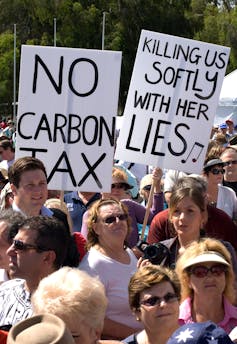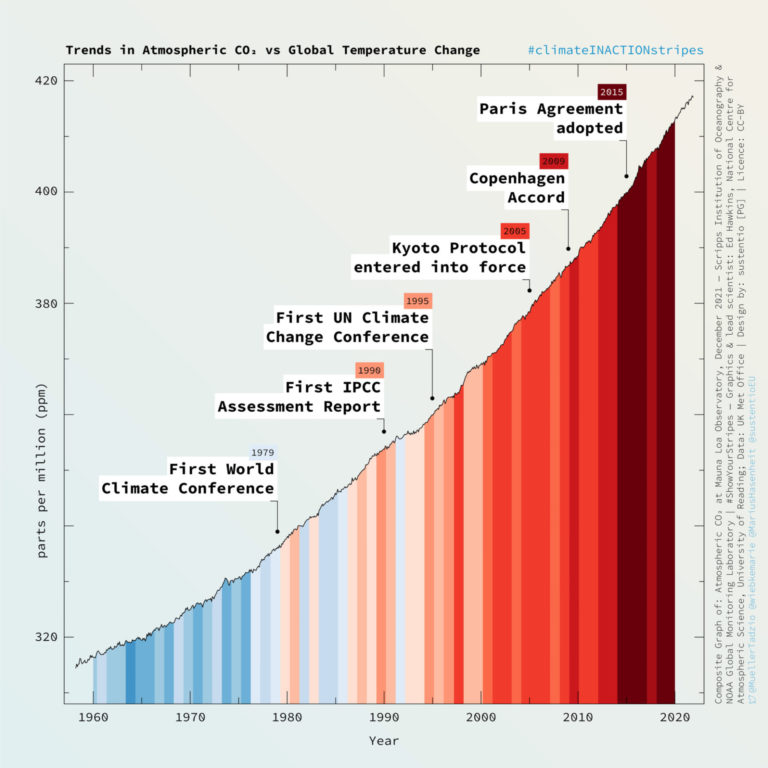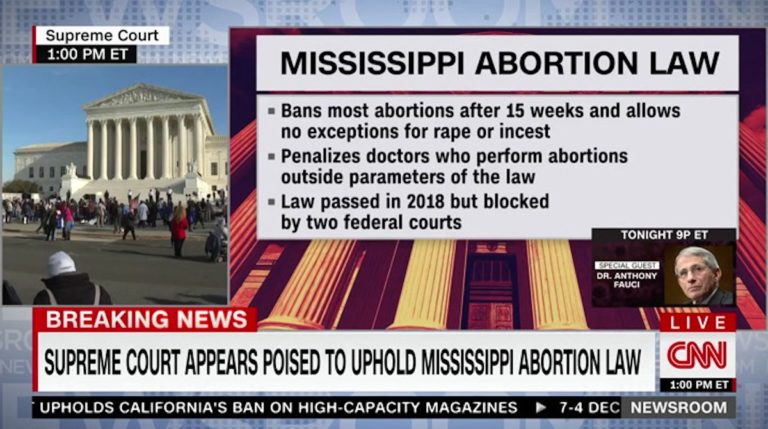
Yoan Valat/EPA
Michael Mehling, University of Strathclyde
The gilets jaunes movement, by its own description, is motivated by broad discontent over shrinking incomes and rising living costs in France. However, the demonstrators in yellow jackets have rallied around one particular government policy: a looming hike in fuel taxes.
Since 2014, domestic excise taxes on energy products have been linked to carbon content, with more carbon-intensive fuels taxed at a higher rate. Tax rates have also been scheduled to increase on an annual basis.
For consumers, this has translated into gradually rising prices for fossil fuels such as petrol, diesel, natural gas, and heating oil. The objective of these rate hikes, according to the French government, is to reduce reliance on imported energy, reduce greenhouse gas emissions and yield tax revenue to cut payroll taxes and stimulate employment.
Carbon taxes versus the world
The problem, however, is that such taxes tend to be unpopular. While the recent protests in France stand out for their intensity, they join a growing record of political turmoil spurred by carbon and energy taxes in different parts of the world.
In 2017, Mexicans took to the streets to express outrage at fuel tax increases. During the recent US midterm elections, residents of Washington state again rejected a ballot measure aimed at introducing a carbon fee. North of the border, several Canadian provinces have started legal proceedings against a federal carbon pricing framework. Germany and Ireland recently backed away from carbon tax expansions.
Research has long shown how difficult it is to win popular support for carbon and energy taxes. One reason is that these impose an explicit and immediate cost on emitters, disproportionately affecting politically influential industries such as fossil fuel companies, which tend to use their influence to resist or weaken pricing policies. At the same time, they only promise diffuse future benefits for the broader population.

Phillip Minnis/Shutterstock
Renewable energy subsidies are a costlier way of achieving emission reductions overall but they spread that cost across the broader public. The financial benefit, meanwhile, is highly concentrated for subsidy recipients, creating strong supportive constituencies.
Surveys confirm that voters prefer financial aid policies over taxes, suggesting that public support for climate action is broad but shallow. Addressing climate change enjoys widespread approval – until climate action comes with a tangible price tag, that is.
Unlike other climate policies such as subsidies, carbon taxes make that price tag visible, and that is a big reason for their low popularity. Some commentators have therefore suggested a sequenced approach in which less contentious policies pave the way for gradual introduction of a robust carbon price. Still, the fact that other policies don’t carry an explicit price tag doesn’t mean they don’t also impose a burden on the economy and on consumers.
In the long run, the cost of doing nothing will almost certainly outweigh the cost of climate action – but the latter is real and will be allocated unevenly, creating winners and losers. That explains a growing preoccupation with the distribution of climate policy impacts. The idea of a “just transition” is an overriding theme at this year’s climate summit in Poland. It asks us to consider how we can move society to a low-carbon world without leaving anyone behind.
A tide that raises all boats
The idea was enshrined in a declaration signed by ministers attending COP24, calling for greater consideration of the social consequences of a low-carbon transition. The French could well have used this as a guide in its response to public backlash against its energy tax plans. The demand for a just transition includes gaining social approval for climate policy by compensating, training and supporting people likely to be impacted by it.
The French government assigned revenues from its energy tax increase to the general budget and earmarked parts of it for a business tax credit meant to stimulate employment and competitiveness. For taxpayers, the benefits remained obscure, and credibility of the carbon tax suffered. Instead, the government could have returned the revenue directly to taxpayers in the form of uniform or targeted cash transfers.
Not only would that have made the use of revenue more transparent, it would have counteracted the general tendency of carbon and energy taxes to be regressive, that is, to affect low-income households disproportionately. Dedicating a share of revenue to helping disadvantaged communities could further reduce the perceived inequities that sparked unrest in the first place.
Other places have shown that it can be done. A carbon tax introduced in British Columbia in 2008 faced initial opposition, but smart investment of tax revenue – including an annual Climate Action Tax Credit for every citizen – and a robust communications strategy have since won it broad support. People need access to affordable low-carbon options if a carbon price is to be effective, which underscores the need for adequate investment in innovation and infrastructure, such as public transit or electric vehicle charging stations.
The gilets jaunes movement reminds us that we still have much to learn about how to craft climate policies that are both environmentally ambitious and politically durable. We would do well to heed this insight: time is not on our side, and we cannot afford more setbacks.![]()
Michael Mehling, Professor of Environmental Law & Governance, University of Strathclyde
This article is republished from The Conversation under a Creative Commons license. Read the original article.




16 Comments
Pingback: jazz coffee
Pingback: ซ่อมไอโฟนเชียงใหม่
Pingback: ประกันภัยโดรน
Pingback: เครื่องกรองน้ำโคเวย์
Pingback: โถส้วม
Pingback: เว็บสล็อตหมีแพนด้า ถูกใจสายปั่นสล็อต ทำเงินได้ไม่อั้น สมัครออโต้ LSM99
Pingback: vuse prismatic
Pingback: สล็อตเว็บตรง100 ต่างประเทศ
Pingback: PGSLOT DEMO เล่นฟรี24h
Pingback: Diyala/baqubah/university/universal
Pingback: sagame
Pingback: gambia senegal
Pingback: PGSLOT ฝากถอนวอเลท ไม่ต้องง้อธนาคาร
Pingback: บอลต่อ บอลรอง
Pingback: myplay168
Pingback: 토토사이트 꽁머니